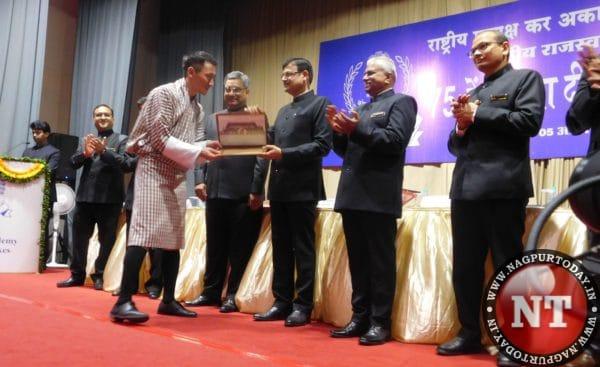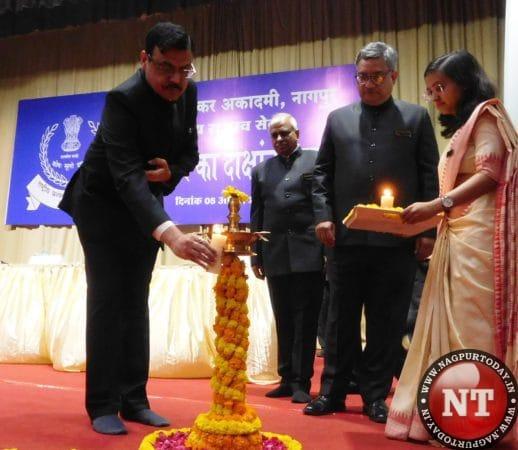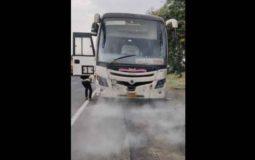Nagpur: Addressing the valedictory function of IRS officers at National Academy of Direct Taxes (NADT) in Nagpur on Wednesday, Nitin Gupta, Chairman, Central Board of Direct Taxes (CBDT) acknowledged the role of Indian Revenue Service (IRS) and importance of Income Tax Department in Government’s policy formulation and said that citizen centric tax services will boost confidence of people in tax administration.
He also spoke about the vision of the department with values of transparency, progressive taxation and voluntary compliance and highlighted the important aspects of increasing Direct Tax collection, adoption of technology, e-governance, tax transparency, e-filing and e-assessment, voluntarily compliance and ease of doing business.
Gupta was in Nagpur to attend the valedictory ceremony of 75 batch of 47 IRS officers and 02 officers of the Royal Bhutan Service. Sanjay Puri, Principal DG (Trg.), NADT, and other senior officers of Income Tax Department were also present on the occasion.
Gupta further pointed out the important role of IRS Officers in widening and deepening of tax base, implementation of faceless assessment scheme, technology and data driven investigation. Sanjay Puri expressed his heart felt gratitude to the dignitaries for taking their time out of their busy schedule and for their valuable guidance to the young officer trainees of the 75th batch of IRS.
The 75th batch comprises 49 officer trainees including 2 officer trainees from Bhutan Royal Service. The average age of the batch is 28 years. There are 15 lady officer trainees in the batch which is about 30.6 percent of the total batch strength. The batch is represented by 16 states and Union territories of India.
The largest number of officer trainees come from Kerala (9) followed by Uttar Pradesh (8), Jharkhand (6), Maharashtra and Karnataka with (4) each and Bihar (3). As regards their education, 73 percent of the officer trainees have an engineering background.
The batch also includes 3 officer trainees from medical sciences background, 3 from commerce and one from the law background. 53 percent of the officer trainees have previous work experience. 33 percent of officer trainees are from rural background and rest of them come from urban or semiurban regions.


















